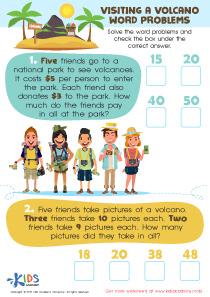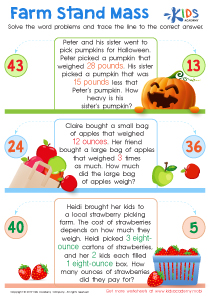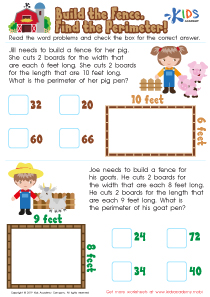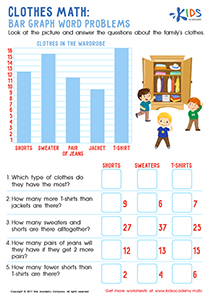Addition skills Normal Addition and Subtraction Word Problems Worksheets for Ages 3-6
4 filtered results
-
From - To
Enhance your child's math skills with our Addition and Subtraction Word Problems Worksheets designed for ages 3-6. These engaging worksheets introduce young learners to essential addition concepts through relatable scenarios that spark their imagination. Kids will cultivate problem-solving abilities as they tackle colorful, age-appropriate word problems tailored to foster a love for math. Ideal for parents and educators, our materials support early mathematical literacy, boost critical thinking, and build confidence in arithmetic skills. Start your child on a path to math mastery and make learning fun with our thoughtfully designed worksheets that cater to little learners' developmental needs.
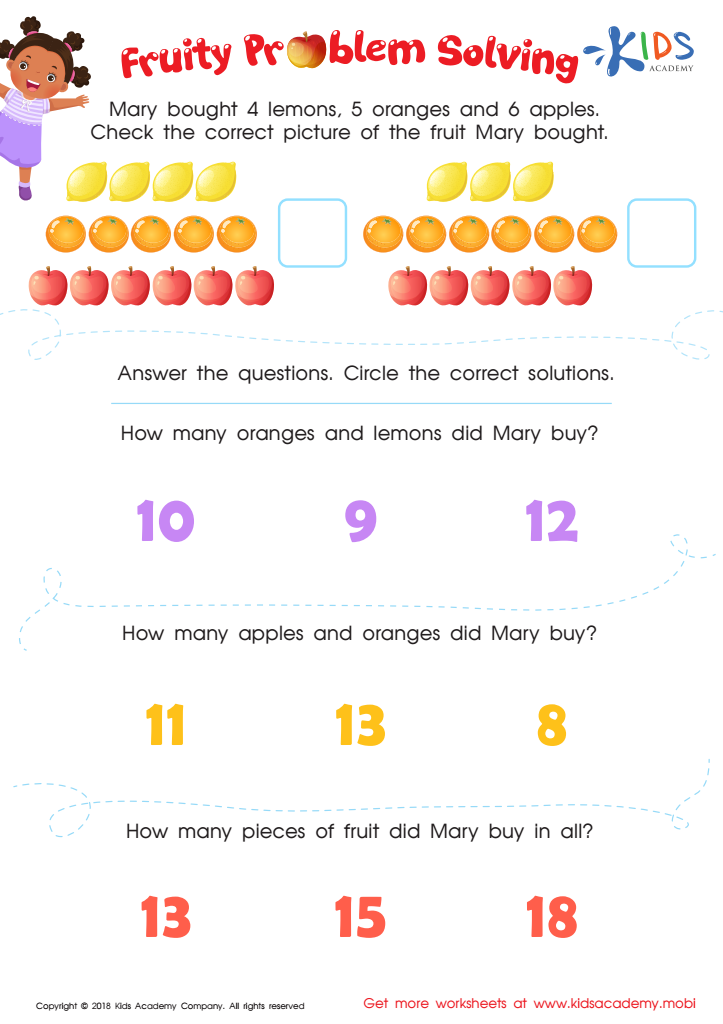

Fruity Problem Solving Worksheet


Adding Flower Petals Worksheet
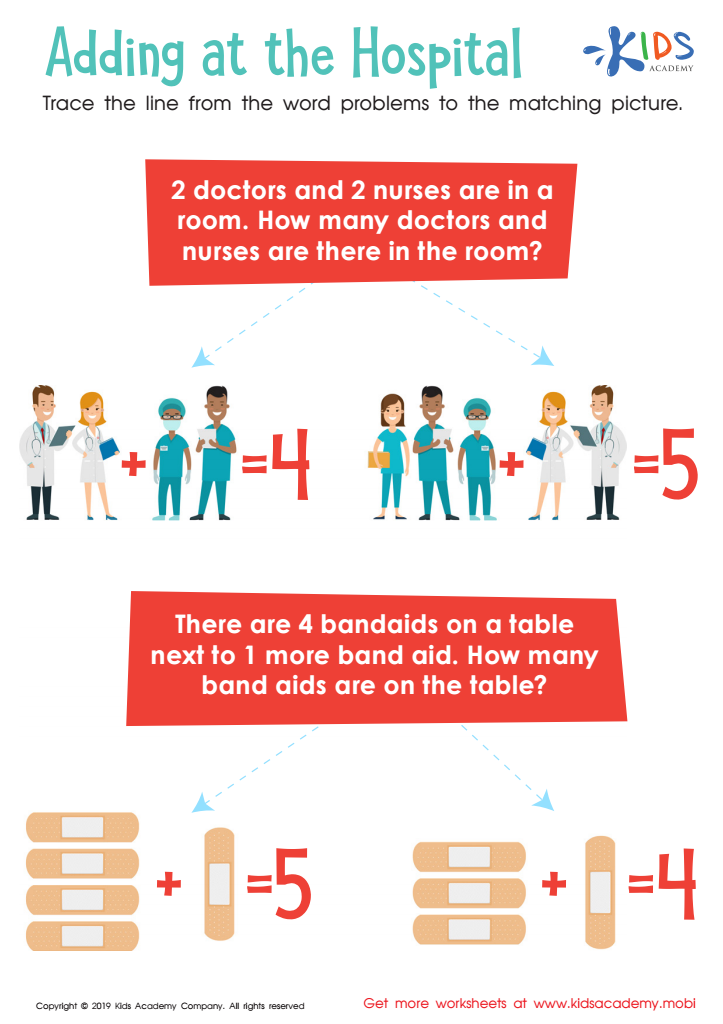

Adding at the Hospital Worksheet
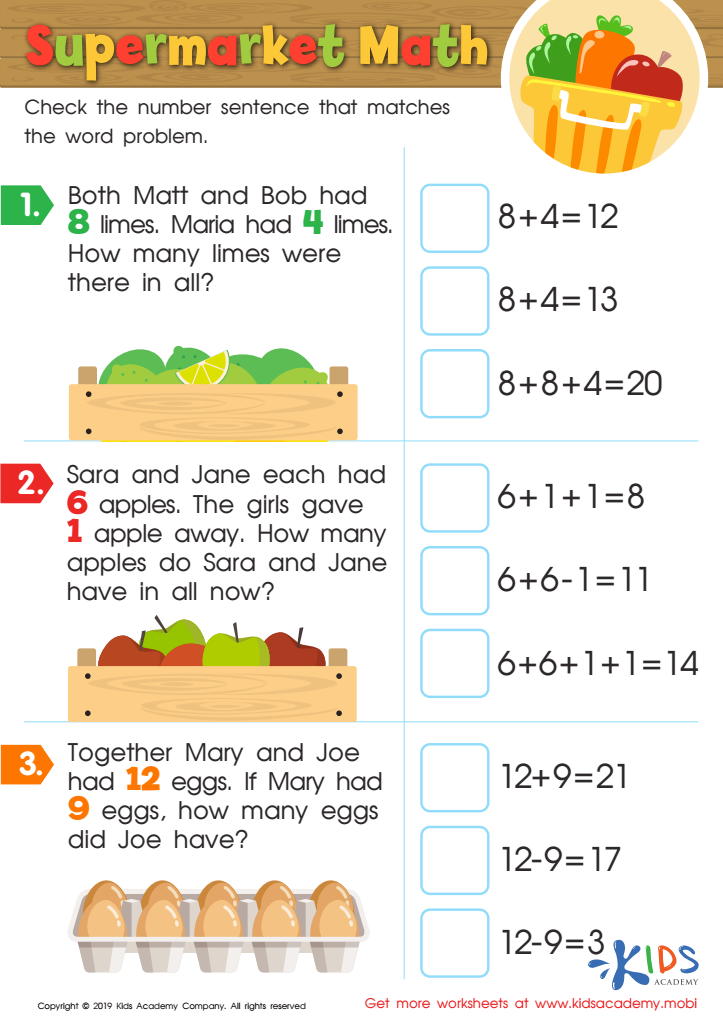

Supermarket Math Worksheet
Addition and subtraction skills are foundational to a child's mathematical understanding and overall cognitive development. For children aged 3-6, engaging with normal addition and subtraction word problems enhances their problem-solving abilities and critical thinking skills. These early experiences in math also promote numeracy, which is crucial for later success in more complex mathematical concepts.
Parents and teachers should care about these skills because they lay the groundwork for children's future academic performance. When children practice solving word problems, they learn to interpret and understand language in mathematical contexts, bridging literacy and numeracy. This dual skill development enriches their learning experience and encourages a more holistic approach to education.
Furthermore, incorporating word problems into lessons allows children to relate math to real-life situations, fostering a sense of relevance and increasing their motivation to learn. It encourages discussions at home or in the classroom about everyday mathematics, making learning interactive and engaging.
By nurturing addition and subtraction skills in young learners, parents and teachers equip children with essential tools for lifelong learning and problem-solving. These skills not only support academic growth but also instill confidence in handling mathematical tasks, ultimately fueling a positive attitude towards math as they progress in their education.
 Assign to My Students
Assign to My Students








